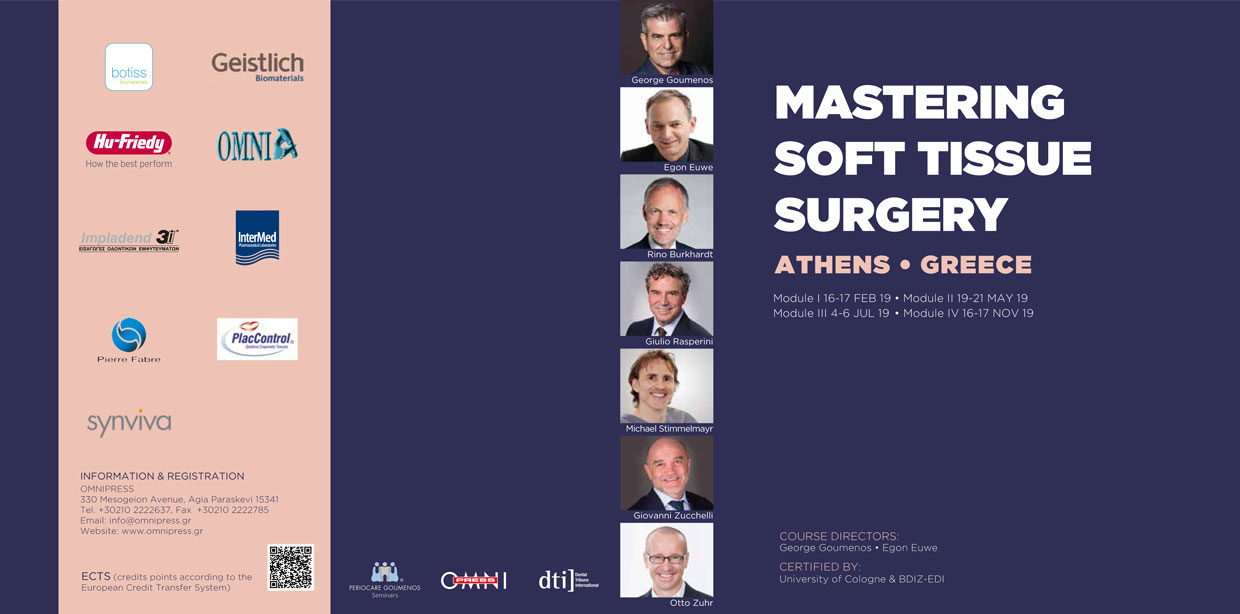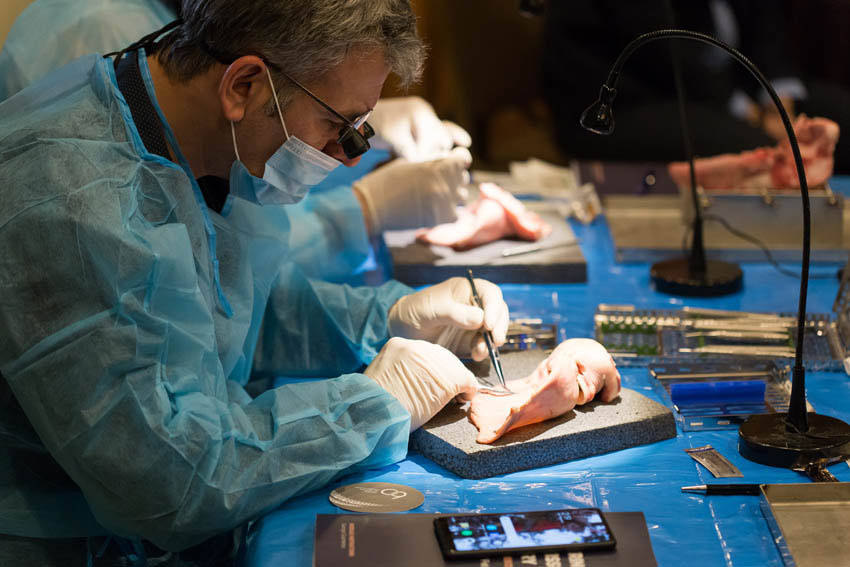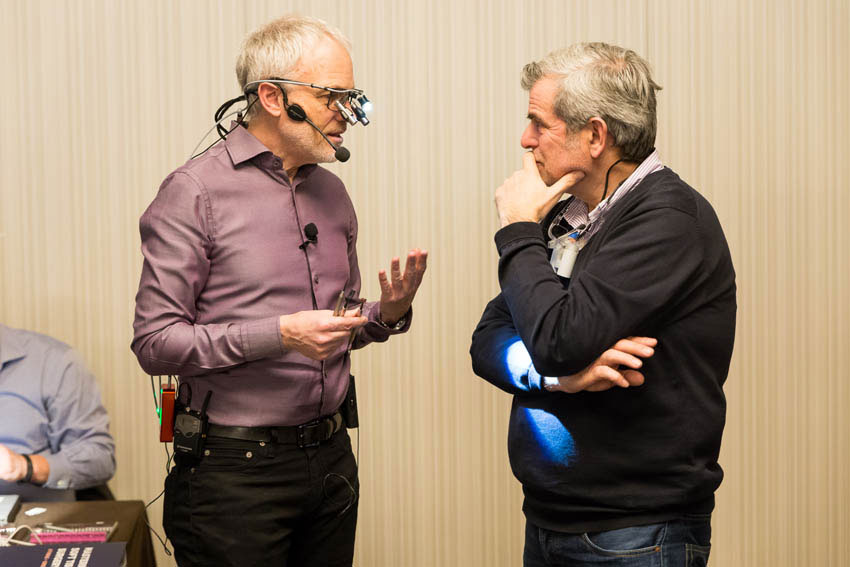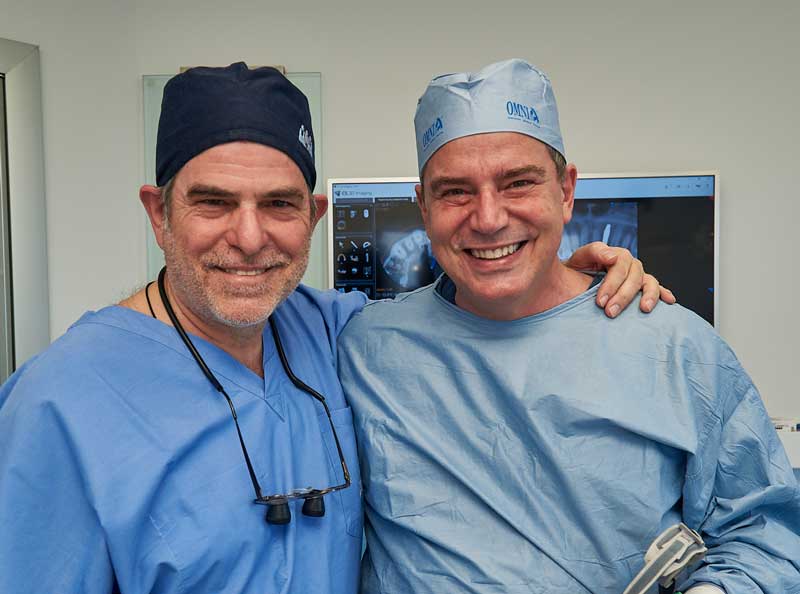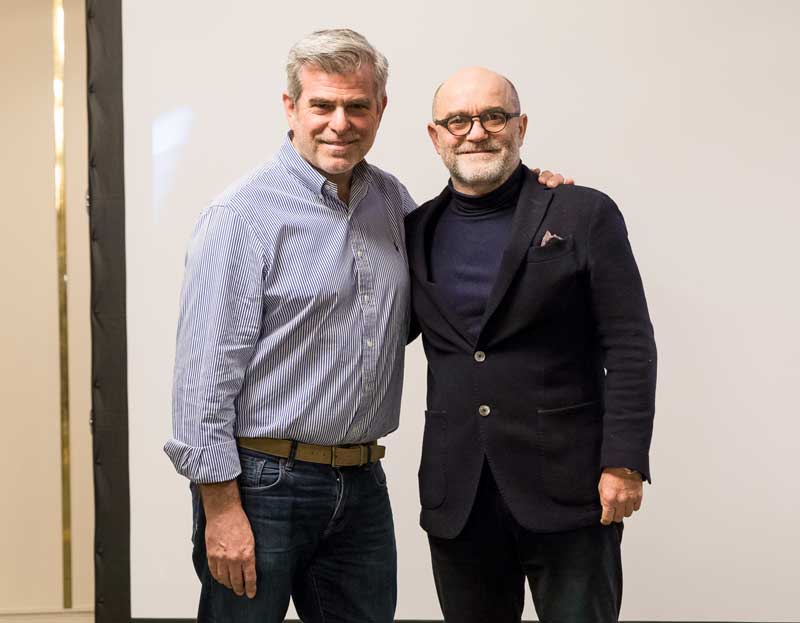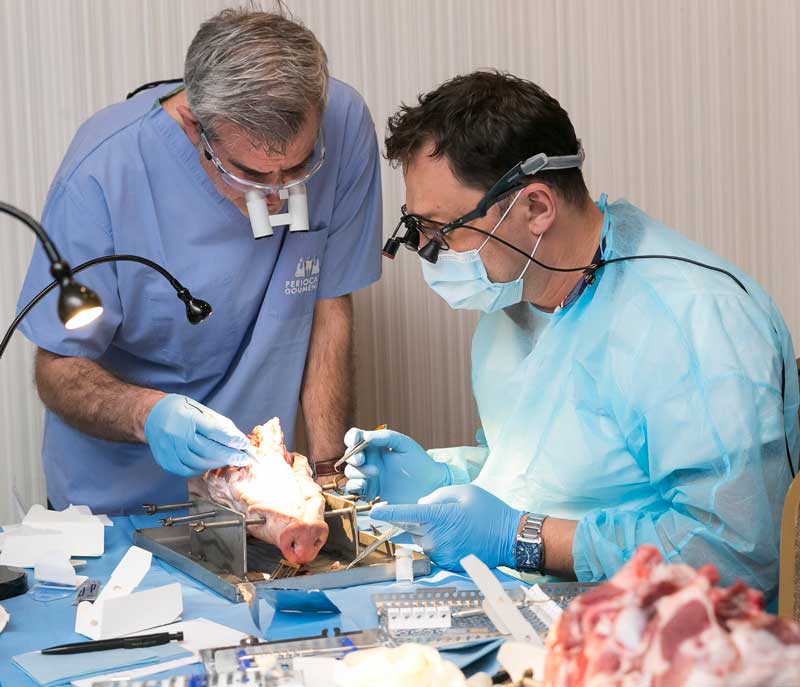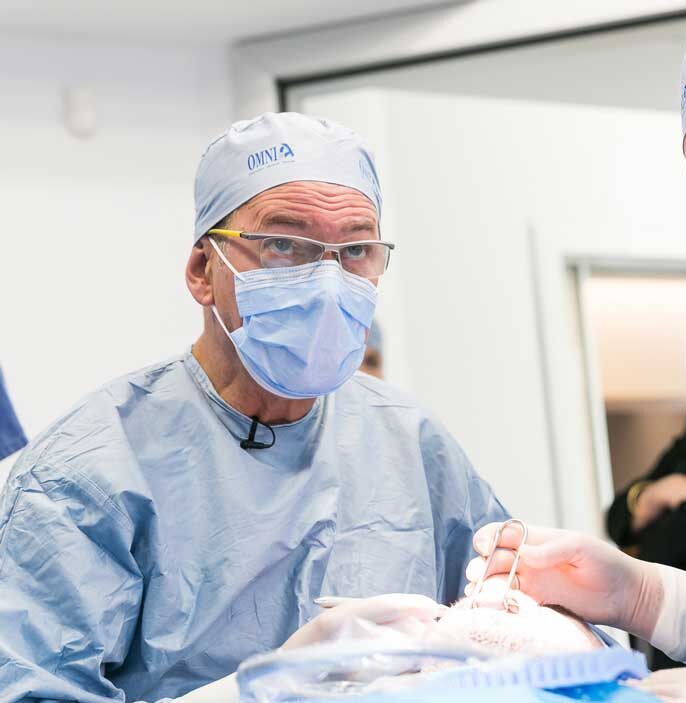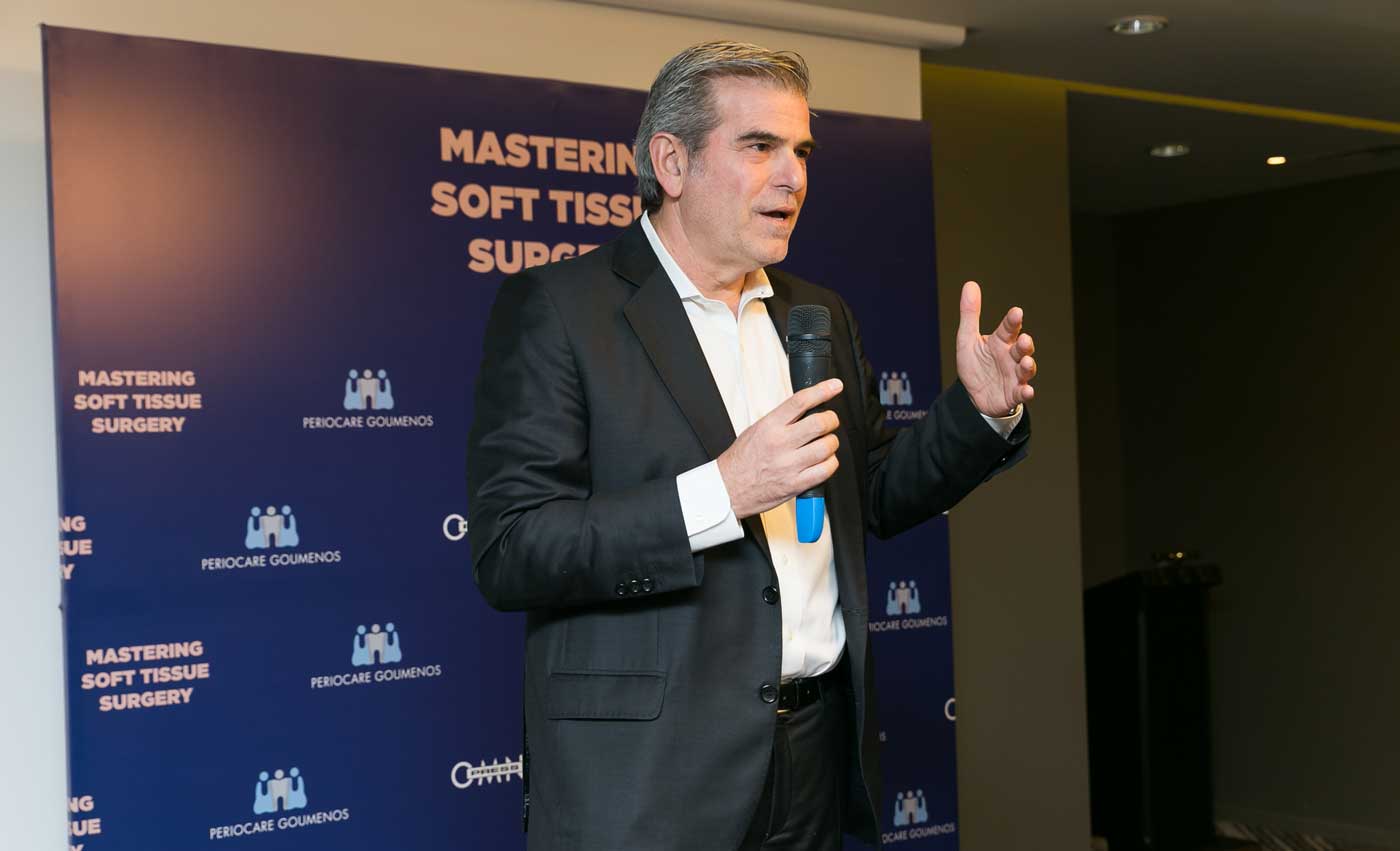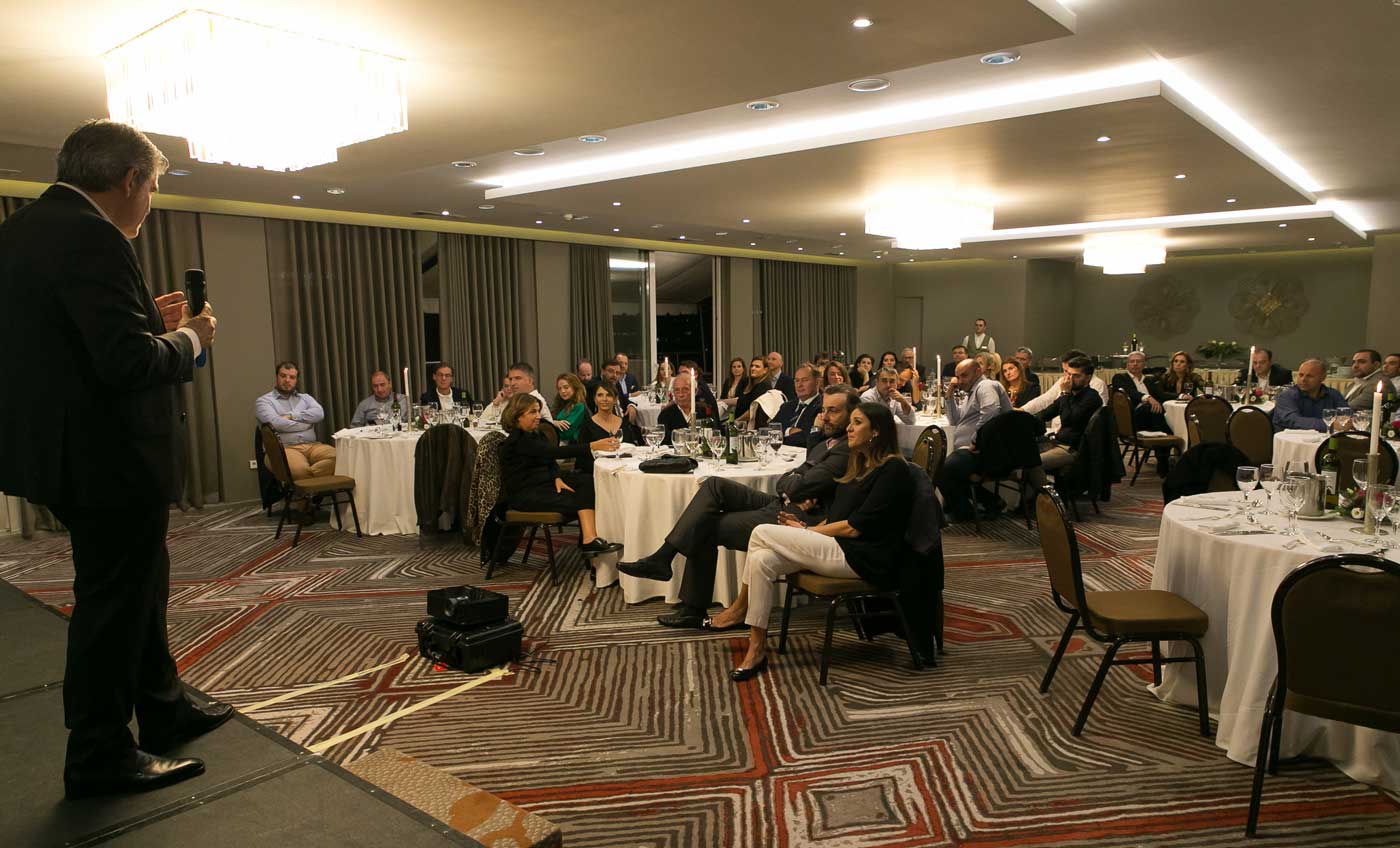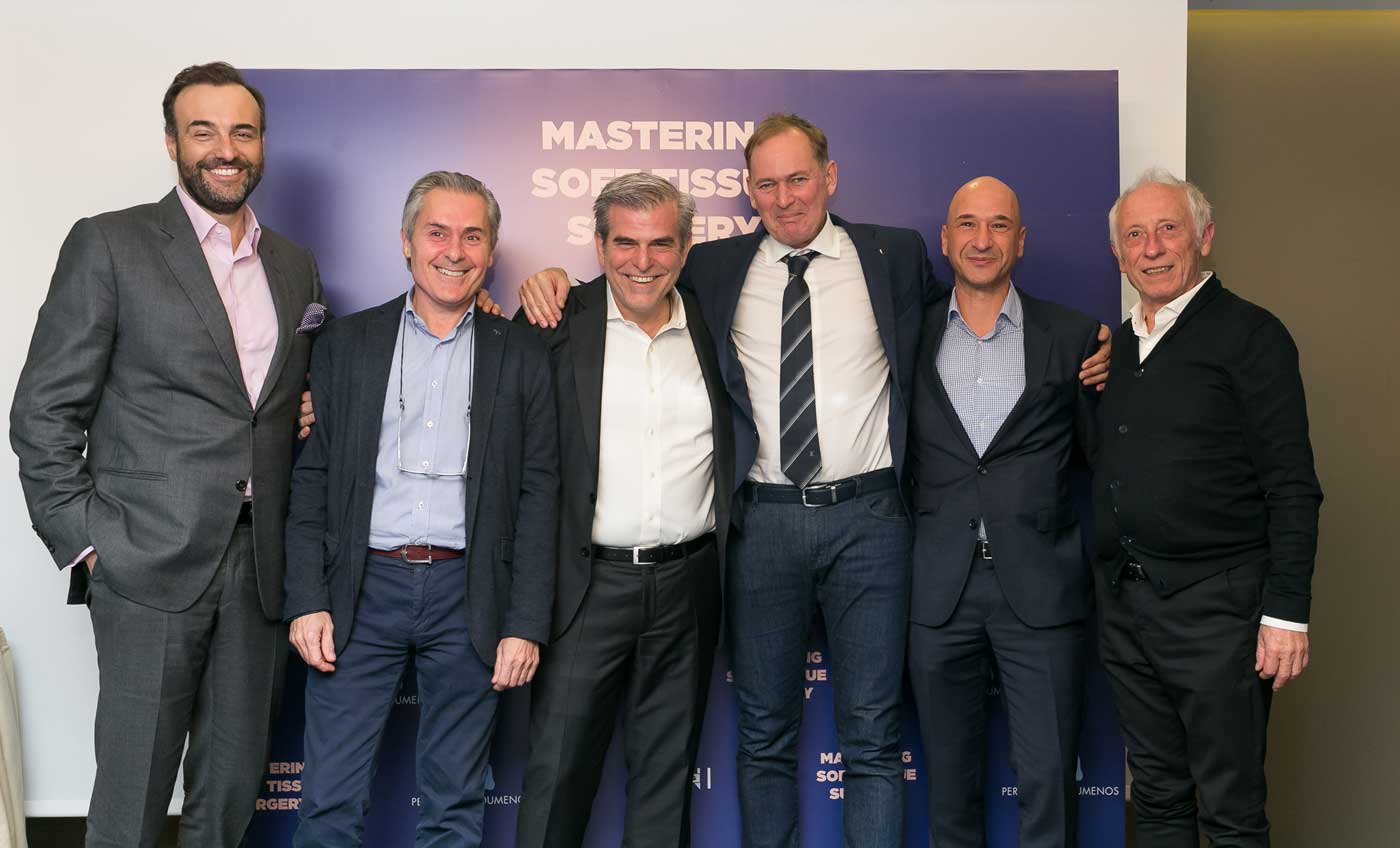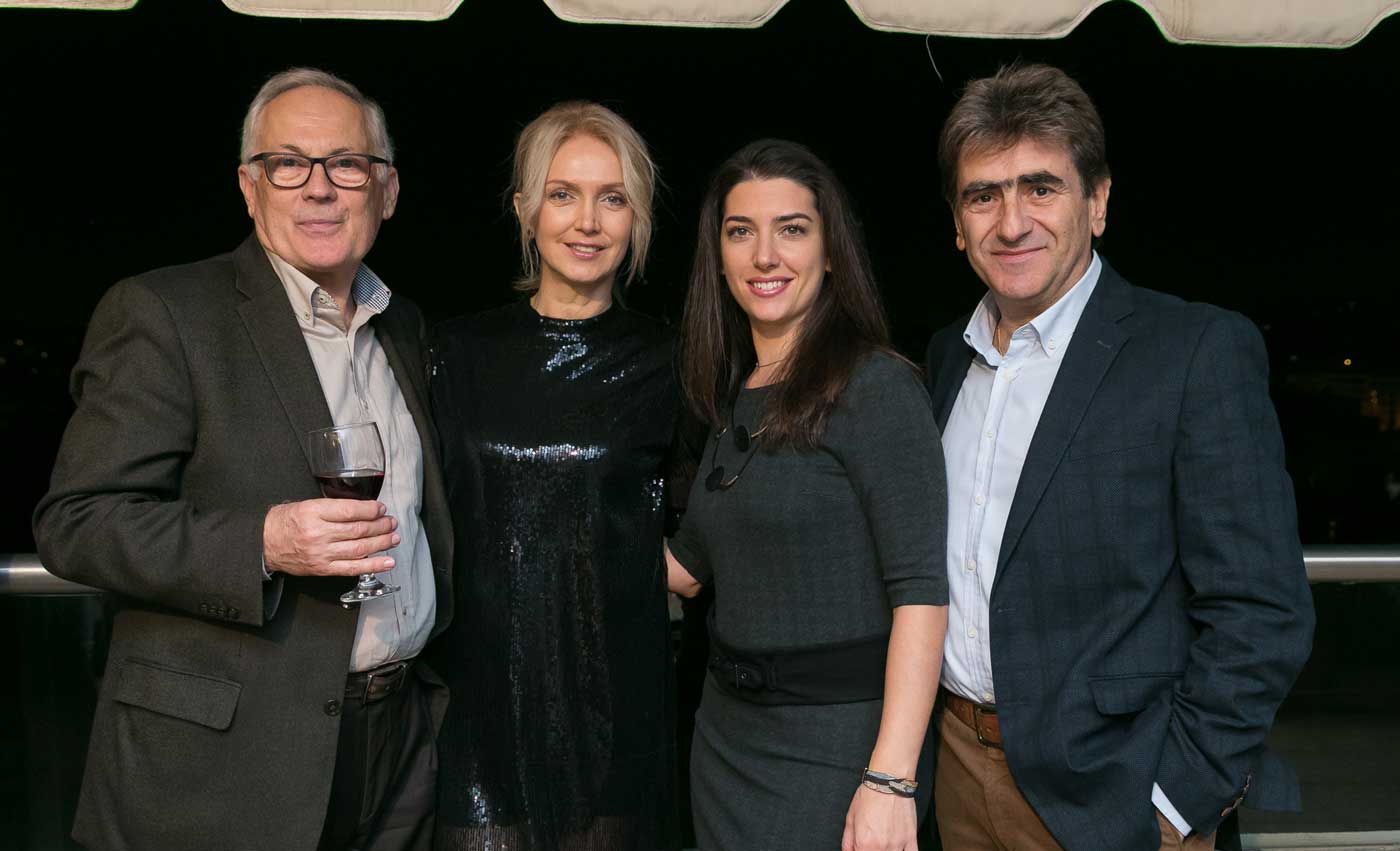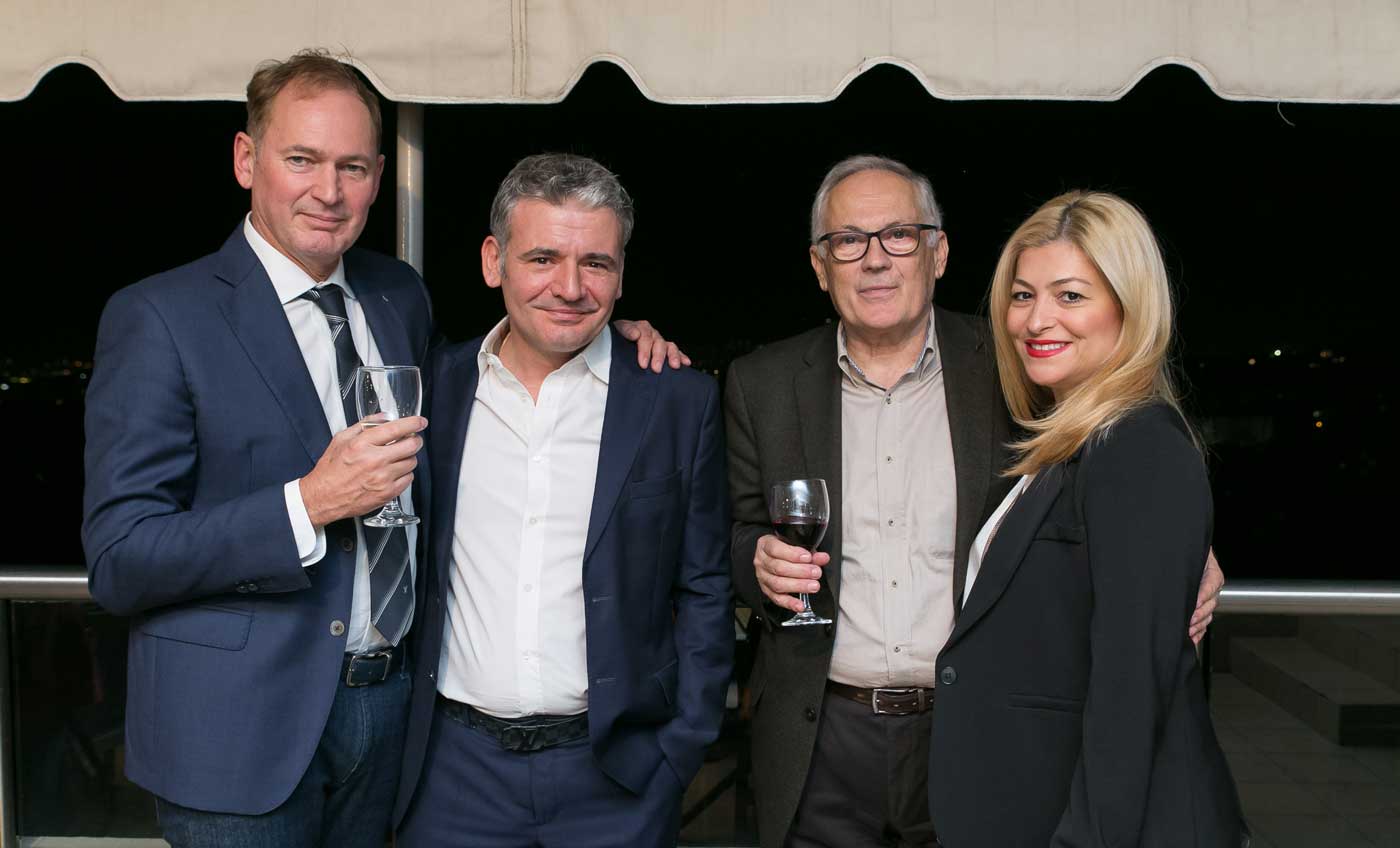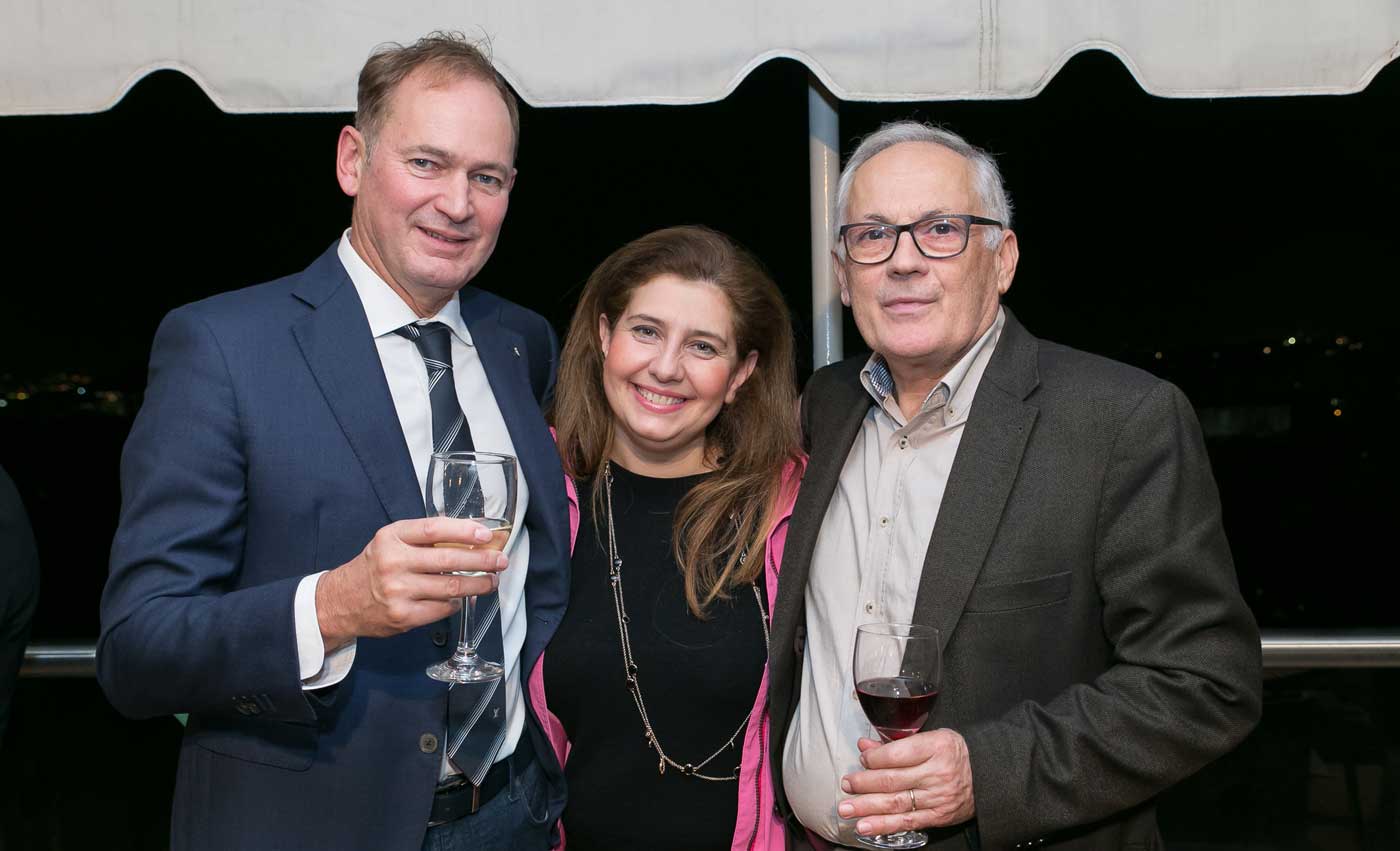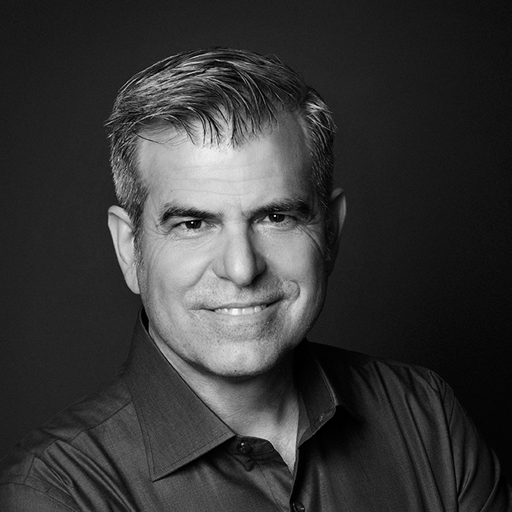Rino Burkhardt | George Goumenos | Prof. Zucchelli | Giulio Rasperini | Otto Zuhr | Michael Stimmelmayr | Egon Euwe
The aim of the Curriculum is to provide knowledge on the appropriate surgical management of oral soft tissues. The trainees gain a solid foundation of knowledge on the biology of healing and receive comprehensive training in the basic surgical principles and surgical techniques, along with the required equipment and materials used.
The seminars aim to render the application of surgical techniques in everyday dentistry more user-friendly and help dentists achieve more predictable and effective results. Soft tissue surgery is presented in two 2-day modules and two 3-day modules. Each seminar includes lectures, video presentations, hands-on demonstration on the jaw bone of a pig and attendance of live surgery sessions.
Share
CONTEMPORARY SOFT TISSUE SURGERY IN EVERYDAY DENTISTRY: From flap design to wound closure.
9.00-10.30
The Structure & Function of the Periodontal Tissues (Theory), Wound Healing & Tissue Induction (Theory)
10:30-11:00
Coffee Break
11:00-12:30
Suturing as a Key Indicator for Manual Skills (Hands-on & Theory)
12:30-13:30
Lunch Break
13:30-15:00
Minimally-Traumatic Mucosal Surgery (Theory)
15:00-15:30
Tea Break
15:30-17:30
Mucosal Flap Preparation & Wound Stabilization (Hands-on)
17:30-18:00
Q and A
Rino Burkhardt
9.00-10.30
Soft tissue responses and healing promoting substances (Theory)
10:30-11:00
Coffee Break
11:00-12:30
Blood concentrates in wound healing (Theory)
12:30-13:30
Lunch Break
13:30-15:00
Basic principles in soft tissue surgery (Theory & Hands-on)
15:00-15:30
Tea Break
15:30-17:30
Different flap designs and suturing techniques (Hands-on)
17:30-18:00
Q and A
George Goumenos
SOFT TISSUE QUANTITY AND QUALITY ENHANCEMENT AROUND TEETH AND IMPLANTS: Surgical techniques to augment the zone of keratinized soft tissue.
09.00-10.00
Esthetic Mucogingival Surgery around Teeth. Part I. Treatment of Single Tooth Recessions
10.00-11.00
Esthetic Mucogingival Surgery around Teeth. Part II. Treatment of Multiple Teeth Recessions
11:00-11:30
Coffee Break
11:30-13:30
Treatment of Cervical Abrasion Defects Associated with Gingival Recession
13:30-14:30
Lunch Break
14:30-15:30
Autogenous Grafting around Implants
15:30-16:00
Tea Break
16:00-17:00
Soft tissue Thickening vs Hard tissue Overcontouring
17:00-18:00
Dealing with the Partially and Totally Missing Papilla
18:00-18:30
Q and A
Prof. Zucchelli
09.00-12.00
Live Surgery (Use of FIBRO-GIDE)
12:00-13:00
Lunch Break
13:00-14:00
Diagnosing the different Biotypes and their impact on Tissue Characteristics
14:00-15:30
The Biomaterials as Soft Tissue Substitutes. Current status and future trends
15:30-16:00
Tea Break
16:00-17:30
Soft Tissue Management during Regenerative Procedures
17:30-18:00
Q and A
Giulio Rasperini
09.00-10.00
Boosting of the Biotype. A critical factor for long term Tissue Stability
10:00-11:00
The Free Gingival Graft
11:00-11:30
Coffee Break
11:30-13:00
The Free Gingival Graft (Hands on)
13:00-14:00
The Connective Tissue Graft (Hands on)
14:00-15:00
Lunch Break
15:00-16:00
Use of MUCODERM (Hands on)
16:00-16:30
Tea Break
16:30-17:30
Use of MUCOGRAFT (Hands on)
17:30-18:30
Use of FIBRO-GIDE (Hands on)
18:30-19:00
Q&A
George Goumenos
THE DEFECTIVE RIDGE AFTER THE EXTRACTION. PREVENTION AND TREATMENT STRATEGIES FOR PREDICTABLE ESTHETIC RESTORATIONS AROUND TEETH AND IMPLANTS.
09.00-10.00
Harvesting CTG with the Single incision Technique / The Modified Tunneling Technique
10.00-11.00
Soft Tissue Management in the Immediate placement procedure /
11:00-11:30
Coffee Break
11:30-13:30
Comprehensive Treatment Planning in the esthetic zone
13:30-14:30
Lunch Break
14:30-15:30
Soft Tissue Reconstruction in different cases
15:30-16:00
Tea Break
16:00-17:00
Flap Management in GBR procedures
17:00-18:00
Application of Digital Dentistry to evaluate post op results and future trends in Soft Tissue research
18:00-18:30
Q and A
Otto Zuhr
09.00-10.00
Ridge alterations after tooth extraction
10:00-11:00
Socket Sealing with Autogenous soft tissue grafts
11:00-11:30
Coffee Break
11:30-13:00
The Palatal Pedicle Flap
13:00-14:00
Lunch Break
14:00-15:00
The Single incision Technique for CTG harvesting (Hands on)
15:00-16:00
Socket Sealing with FGG (Hands on)
16:00-16:30
Tea Break
16:30-17:30
Socket Sealing with Mucograft Seal (Hands on)
17:30-18:30
The Palatal Pedicle Flap (Hands on)
18:30-19:00
Q&A
George Goumenos
09.00-12.00
Live Surgery (Use of Palatal Pedicle Flap)
12.00-13.00
Lunch Break
13:00-14:00
The epithelialized-SCTG for Socket Sealing and Root Coverage
14:00-15:00
Pontic Site development
15:00-15:30
Tea Break
15:30-16:30
Anatomical landmarks in Soft tissue surgery
16:30-17:30
Complications in the donor sites of Autogenous soft tissue grafting (Prevention and Treatment)
17:30-18:00
Q and A
Michael Stimmelmayr
MANAGEMENT OF DENTAL IMPLANT FAILURES AND COMPLICATIONS IN THE AESTHETIC ZONE.
MORNING SESSION
(09.00-12.00 am)
LIVE SURGERY (use of CTG)
AFTERNOON SESSION
(14.00-18.00 pm)
(LECTURES + VIDEO)
- Etiology of esthetic failures in Implantology
- The “ideal” implant placement
- Treatment planning of the “highly” esthetic demanding cases
Egon Euwe
MORNING SESSION
(09.00-12.00 am)
(LECTURES + VIDEO)
- Differentiating the failure from complication
- Osseointegrated implant with esthetic failure: restore, submerge or extract?
AFTERNOON SESSION
(14.00-18.00 pm)
- Hands on (pig jaw model)
- Use of CTG to improve the color and the thickness of the peri-implant mucosa using the tunneling technique
- Removal of an osseointegrated implant and management of the site
George Goumenos
